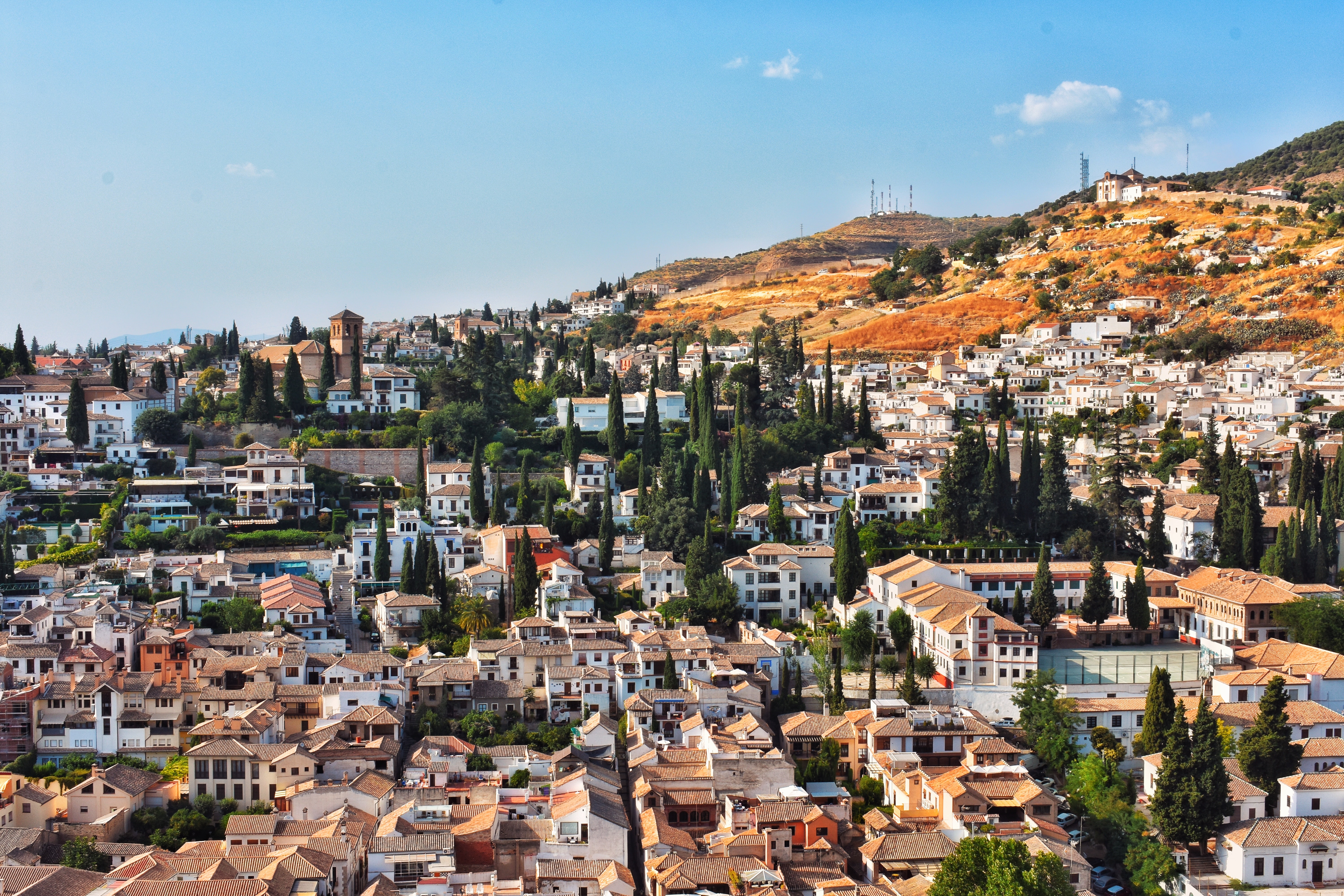
USEFUL INFORMATION
LOCAL TIME
The Spanish Peninsula uses the Central European Time.
MUSEUMS AND MONUMENTS
Not all the monuments in Granada share the same opening hours. Some, like the Alhambra, are open all day to the public, and others, such as the Cathedral or the Royal Chapel, close at midday. Many churches are only open during worshipping hours.
SHOPS
Shops are open from Monday to Friday from 10 a.m. to 2.p.m. and from 5 p.m. to 8 p.m. Shops open on Saturday from 10 a.m. to 2 p.m. Department stores and some shops do not close at midday or on Saturday afternoons.
RESTAURANTS
Breakfast is usually served between 8 a.m. and 10 a.m.
Lunch is usually served between 1 p.m. and 3.30 p.m.
Dinner is usually served from 8.30 p.m. to 11 p.m.
Pubs, bars and discothèques usually stay open until 3 a.m. or 4 a.m.
PUBLIC TRANSPORT
The city buses in Granada start running around 6 a.m. and stop at midnight
The tram/underground starts running around 6:30 a.m. and stops at 11 p.m from Sunday to Friday. The tram goes from 6:30 a.m to 2 a.m on Saturdays.
BANKS
Banks open from Monday to Friday from 8.30 a.m. to 2 p.m.
You will find numerous ATMs throughout the city
PUBLIC INSTITUTIONS
The Public Administration offices are open from Monday to Friday from 8 a.m. to 3 p.m.
TOURIST INFORMATION OFFICE OF THE PATRONATO PROVINCIAL
Mondays – Fridays: 9 a.m. - 8 p.m.
Saturdays: 10 a.m. – 7 p.m.
Sundays & public holidays: 10 a.m. – 3 p.m.
ELECTRICITY AND PLUGS
In Spain, electric appliances work at 220 volts, CA.50 HZ. The wall-sockets use the European system of round pin plugs. Therefore, if you wish to bring your electric shaver, hairdryer or another electric appliance from a country that uses a different voltage system or plug arrangement, you will need a transformer and a plug adapter. Most large hotels provide them, and you can also buy them in specialist shops and large department stores in Granada.
CLIMATE
The time in Granada ranges from a great cold in winter to a great heat in summer. July is the hottest time of the year in Granada and heat waves are not Infrequent. Maximum temperatures can reach 40ºC. Be sure to always stay hydrated.
PERSONAL SAFETY
Granada is a safe region, but just as in any other place, you must be careful with pickpocketing. The Spanish police has a list of general recommendations for tourists.
In your accommodation:
- Do not leave money or objects of value in sight. Use a strongbox instead.
In public places:
- Always watch your luggage and personal belongings.
- Keep your wallet or purse safe in crowded areas.
- Only take what is strictly necessary when going to the beach or swimming pool.
- Keep your camera or video camera safe at all times.
- Avoid street gambling games as they are rigged.
- Do not trust any suspicious requests for help.
- Avoid all too easy business deals. They are most probably a swindle.
- If you are using a car, do not leave any objects of value in sight.
WATER
Tap water is drinkable in Granada. Nevertheless, consumption of bottled water is widespread.
EMERGENCY TELEPHONES NUMBERS
- Policía Nacional: 091
- Guardia Civil: 062
- Policía Local: 092
- Emergencias: 112
TELEPHONE
TO MAKE A CALL TO GRANADA: In order to ring Granada from another country, you have to dial 0034 plus the number of the person you want to speak with. In Spain, all telephone numbers, both landline and mobile numbers, have 9 digits.
TO MAKE A CALL FROM GRANADA: If you want to ring another country from Granada,you have to dial 00 plus the country code and the number of the person you want to speak with.
TIPPING
Tipping is customary, although not obligatory. You can leave a tip in bars, restaurants, taxis and hotels.
CURRENCY
The currency used in Spain is the euro (€).
OFFICIAL LANGUAGE
Spanish
For more information on tourism, visit https://www.turgranada.es/
